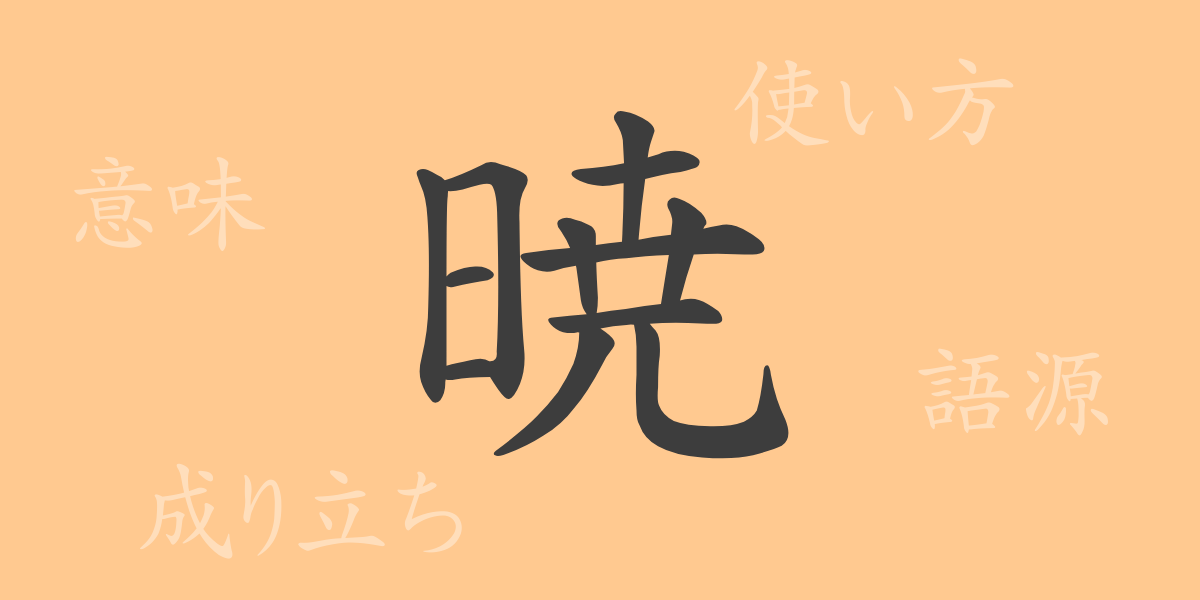The moment when the faint light of dawn begins to illuminate the sky is known as “暁(あかつき)” (Akatsuki). This beautiful word is deeply rooted in Japanese culture and literature, and is used in many expressions. In this article, we will explore the charm of the kanji “暁(あかつき)”, uncovering its origin, meaning, usage, and even the idioms and proverbs it appears in.
Origin of 暁(あかつき)
The kanji “暁(あかつき)” has been used in China since ancient times. Its origin symbolizes the moment when night turns into day and the sun begins to rise. “暁(あかつき)”, which heralds the dawn, is considered a symbol of new beginnings and hope, playing an important role in many cultures and poems.
Meaning and Usage of 暁(あかつき)
“暁(あかつき)” literally refers to dawn or the time when night begins to break. Figuratively, it is also used to mean “the moment when something becomes clear” or “the realization of a goal.” Additionally, in the form “暁(あかつき)には”, it is used hypothetically to mean “if and when ~ happens.”
Readings, Stroke Count, and Radical of 暁(あかつき)
The kanji “暁(あかつき)” is often used in names and literary works due to its beautiful form and meaning.
- Readings: The on’yomi (Chinese reading) is “ギョウ(ぎょう)”, and the kun’yomi (Japanese reading) is “あかつき”.
- Stroke count: “暁(あかつき)” has 12 strokes.
- Radical: The radical is 日部(にちへん), which means “sun” or “day”.
Idioms, Expressions, and Proverbs Using 暁(あかつき)
The kanji “暁(あかつき)” appears in various idioms, expressions, and proverbs. For example, “暁天(ぎょうてん)” refers to the sky at dawn, and “暁夢(ぎょうむ)” denotes dreams seen at dawn or fleeting, ephemeral things. “暁の鐘(あかつきのかね)” means the bell that announces dawn, evoking a sense of new beginnings and the passage of time.
Conclusion on 暁(あかつき)
The kanji “暁(あかつき)” is a character that displays a wide range of expressions in Japanese, from the imagery of dawn evoked by its shape to its figurative uses. It is frequently used in literature and daily conversation, and is also found in names, carrying with it a sense of new beginnings and hope. It is important to continue cherishing the delicate and rich world of expression that “暁(あかつき)” offers.

























